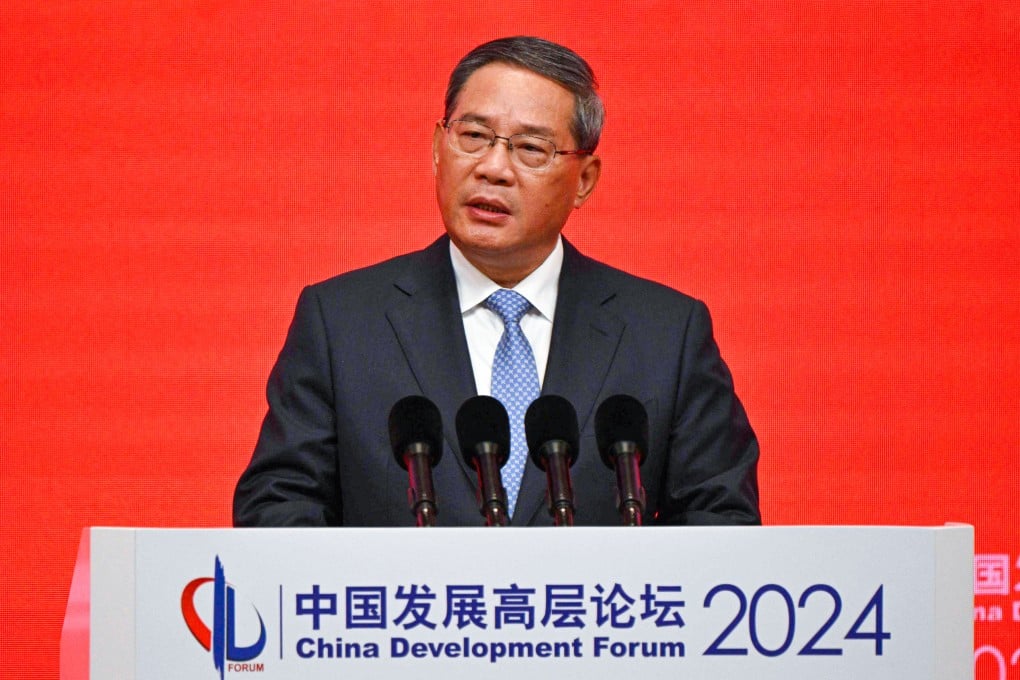Advertisement
China ready to remove barriers for foreign companies, Premier Li Qiang tells international forum
- At China Development Forum, Li highlights potential of urbanisation to boost consumer spending and create opportunities for global investors
- Beijing is ‘carefully’ studying problems faced by businesses, including market access, public tendering and cross-border data flow, he says
Reading Time:4 minutes
Why you can trust SCMP
76

Orange Wangin Beijing
China is ready to roll out new rules to bring down some of the barriers faced by foreign companies, Premier Li Qiang told global business leaders in Beijing on Sunday, while highlighting the potential in urbanisation for overseas investors.
In his keynote address to the China Development Forum, Li said Beijing would create more opportunities for global investors through macroeconomic policy, urbanisation, industrial upgrades and the transition to a green economy.
“The fundamentals sustaining China’s long-term economic growth remain unchanged,” he said, playing up prospects for the world’s second-largest economy.
Advertisement
Li said the Chinese government was “carefully” studying some of the issues raised frequently by businesses, including market access, public tendering and cross-border data flow.
“Some of the questions have been basically resolved, and for some others we are still working on solutions to ensure a good settlement,” he said, two days after China eased security checks for cross-border data transfers.
Advertisement
He also said Beijing would make government services more efficient and protect the lawful rights and interests of businesses of all types.
“We are convinced that a more open China will bring more opportunities of win-win cooperation to the world,” he said.
Advertisement
Select Voice
Choose your listening speed
Get through articles 2x faster
1.25x
250 WPM
Slow
Average
Fast
1.25x